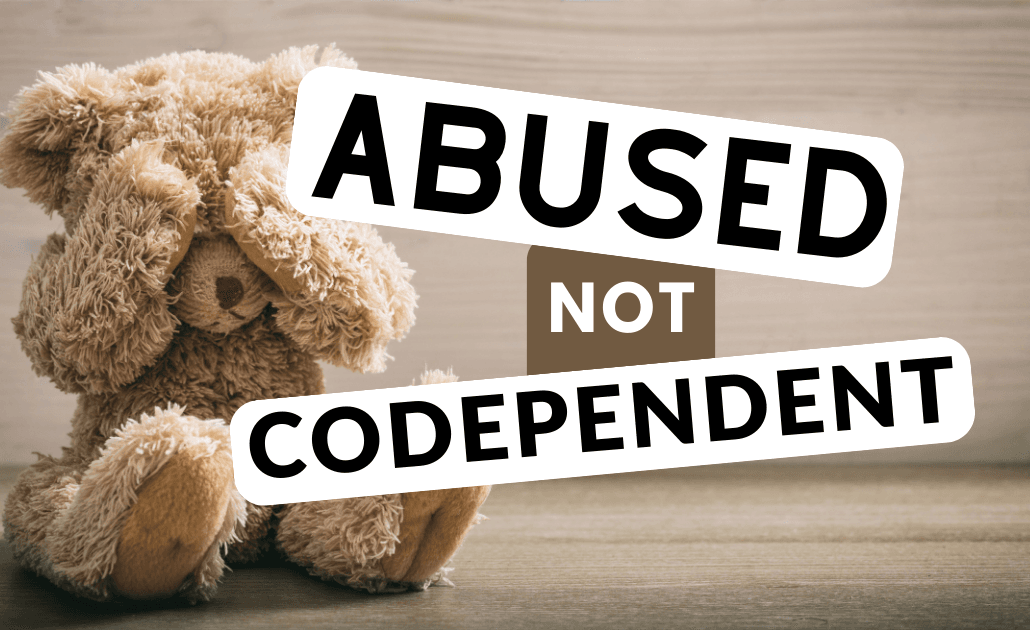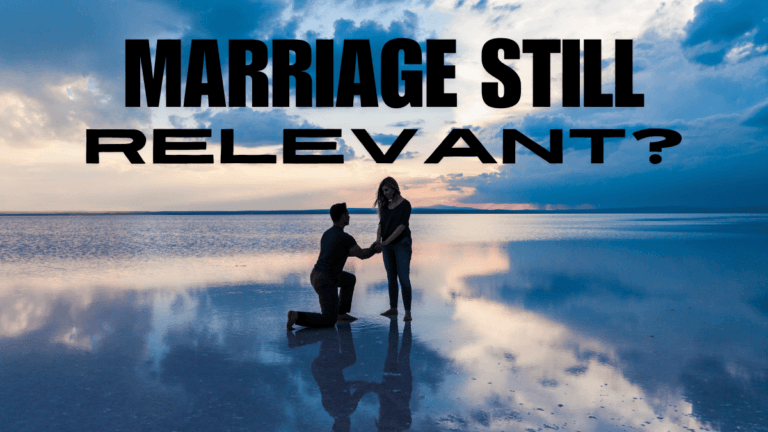4 Reasons Why Victims of Narcissistic Ab&se are Abused, Not Codependent
Narcissistic abuse is a devastating form of emotional and psychological manipulation that leaves victims feeling trapped, depleted and shattered.
Contrary to popular belief, victims of narcissistic abuse are not merely codependent individuals seeking dysfunctional relationships.
In this article, we will debunk the misconception surrounding codependency and shed light on the true nature of narcissistic abuse.
Get our Latest Book!
A Myth? My Cognitive Dissonance Can't Handle This!
Before we embark on this exploration, it is crucial to dispel the myth that victims of narcissistic abuse are codependent.
Codependency refers to a psychological pattern where individuals excessively rely on others for validation and self-worth.
However, victims of narcissistic abuse are not codependent by choice; they are ensnared in a web of manipulation crafted by their abusers.
And they might be stuck there, for a time.
It Starts with Charm
Narcissistic abusers possess a profound ability to charm and manipulate their victims.
They initially present themselves as charismatic, confident, and caring individuals, capturing their victims’ trust and admiration. Over time, however, their true colors emerge as they engage in a calculated game of control and manipulation.
One insidious tactic employed by narcissists is gaslighting. Gaslighting involves distorting the victim’s perception of reality, making them doubt their own memories, feelings, and sanity.
For example, a narcissistic partner may vehemently deny ever making hurtful comments, leaving their victim questioning their own recollection of events.
The Cycle of Emotional Abuse
Victims of narcissistic abuse often find themselves trapped in a vicious cycle of emotional torment. The cycle typically consists of three distinct phases: idealization, devaluation, and discard.
During the idealization phase, the narcissistic abuser showers their victim with love, attention, and adoration. They create an illusion of a perfect relationship, catering to the victim’s deepest desires and needs. However, this phase is short-lived.
As the relationship progresses, the abuser transitions into the devaluation phase.
They belittle, criticize, and demean their victim, eroding their self-esteem and self-worth. The victim is left feeling unworthy, confused, and desperate for the abuser’s approval.
The abuser exploits this vulnerability to exert control and power.
Finally, the discard phase occurs when the narcissistic abuser abruptly ends the relationship or withdraws all affection and attention. This leaves the victim shattered, emotionally drained, and struggling to make sense of the abrupt shift. The abuser may return during this phase, repeating the cycle and intensifying the victim’s trauma, hence the cycle of abuse.
Take the Quiz
The Impact on Victims
Narcissistic abuse leaves profound emotional and psychological scars on its victims. Victims often experience anxiety, depression, low self-esteem, and a distorted sense of reality. They may become hypervigilant, constantly anticipating the abuser’s next move (walking on eggshells), and engaging in a perpetual state of survival mode.
Moreover, victims of narcissistic abuse may suffer from complex post-traumatic stress disorder (C-PTSD). This condition is characterized by a range of symptoms, including flashbacks, nightmares, emotional dysregulation, and difficulties in forming healthy relationships. C-PTSD is a direct result of the chronic abuse endured by victims over an extended period.
Breaking Free from the Chains
Escaping the clutches of narcissistic abuse is an arduous journey, but it is possible. It begins with recognizing the abuse and seeking support from trusted individuals or professionals who can provide validation and guidance.
You can also do this alone, without support. I did it alone (but just because I did it alone does not mean you can do it alone). It’s wise and helpful to have resources especially at this time, because leaving a narcissist, will zap most of your expendable energy.
Pull from your strength that comes from your inner soul, your intuition, and your gut. You can muster up the strength to do it alone, and sometimes you have to, if and when you see an open door. You may not have a support network, you may be isolated from friends. You can still escape, it will be tough, but it’s one step at a time, carefully crafted to the road to freedom.
Here are some crucial steps for victims of narcissistic abuse to break free from the chains:
Education and Awareness
Learn about narcissistic personality disorder and the tactics employed by abusers. Understanding the dynamics of narcissistic abuse helps victims recognize the manipulation and regain a sense of reality.
No Contact or Limited Contact (Gray Rock)
Minimize or cut off all contact with the abuser whenever possible. This includes blocking them on social media, changing phone numbers, and avoiding places where they may appear. If co-parenting or maintaining some level of contact is necessary, establish clear boundaries and limit communication to essential matters.
Related: Read about the risk of Grey Rock – it’s Not All That You Hear About!
Self-Care and Healing
Prioritize self-care and focus on healing from the trauma. Engage in activities that bring joy, practice mindfulness, and seek therapy or counseling to address the emotional wounds caused by the abuse.
Time
The element of time. It’s not that time heal all wounds, as I do not agree with that sentiment (another post), but it’s that you need time to assess your situation, think about things, think about what you have been through, how it made you feel.
I was at a point, where I said to myself, I cannot ever do this again. I hit the end. And from there I absolutely needed a change.
So, it’s time to reflect on your past, the present, and where you want to go. It’s time to set goals, and challenges ahead, which may seem absolutely exhausting at the time. Don’t worry you don’t have to graph it out. It can simply be, to live differently than where you are at the time. And, you have the right to constantly assess and change things as you go.
It’s a time to reflect, simply put, and often why time is one of our most precious assets we have and sometimes it’s certain people, that want to take our time from us–possibly so we cannot think.
I was blonde for almost 20 years, and during my time of reflection, I dyed my hair stark black (see photo below). I was absolutely going through one of the roughest times in my life. I look back on those photos and know exactly what I was going through at the time.
If you can, plan a small weekend getaway – just yourself, so you can stare at a beach, or a mountain, to sit in silence. To do whatever you want to do, away from people that have not been nice (to say the least), time to think and reflect, journal if you want to, and a time to just be, alone in your own presence. Hear your own breathing, and embrace your exact moment in life, and then do it again, when you need to. This is your life, my friend.
It’s time to let your independent thought start to grow, and to grow roots and new limbs…

Rebuild Self-Esteem
Narcissistic abusers systematically erode their victim’s self-esteem. Rebuilding self-esteem involves challenging negative self-beliefs, setting healthy boundaries, and celebrating personal achievements. Engage in self-affirmations, positive self-talk, and self-compassion exercises to foster self-worth and resilience.
Establish a (New) Support System
Connect with support groups or online communities of individuals who have experienced narcissistic abuse. Sharing experiences, insights, and strategies with others who can relate can provide immense comfort and validation.
Sometime you find out your old support system dried up. You may need to start to network and build a new support system.
Reclaim Personal Power
Victims of narcissistic abuse often feel powerless and stripped of their autonomy. Reclaiming personal power involves rediscovering one’s passions, pursuing goals, and making decisions that align with one’s values and desires. Gradually regain control over your life and embrace your agency.
Professional Help
Consider seeking professional help from therapists, counselors or coaches who specialize in narcissistic abuse recovery. They can provide specialized guidance, validation, and support your healing process.
Peaceful, Relaxing Music to Just Chill
Victims of narcissistic abuse are not codependent individuals seeking dysfunctional relationships; they are unwittingly ensnared in a web of manipulation and control.
Understanding the tactics employed by narcissistic abusers and the profound impact on victims is crucial in dispelling the myth of codependency.
By raising awareness, offering support, and empowering survivors, we can help break the cycle of narcissistic abuse and create a world where victims can heal, thrive, and reclaim their lives.
Remember, you are not alone, and there is hope for a brighter future beyond the clutches of narcissistic abuse.
Note: The information provided in this blog post is for educational purposes only and should not substitute professional advice. If you or someone you know is experiencing abuse, please seek help from local resources or helplines dedicated to supporting survivors of abuse.
codependent codependent codependent codependent codependent








